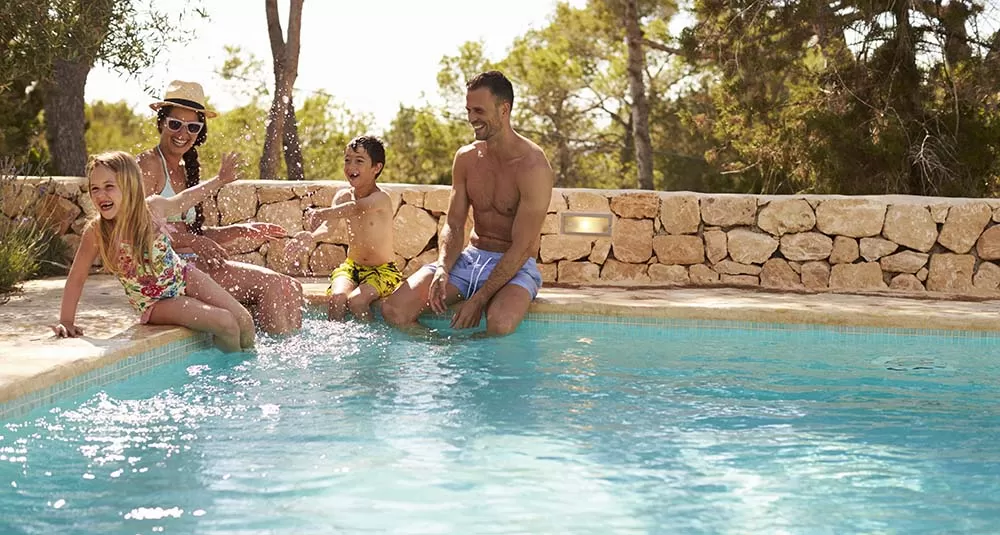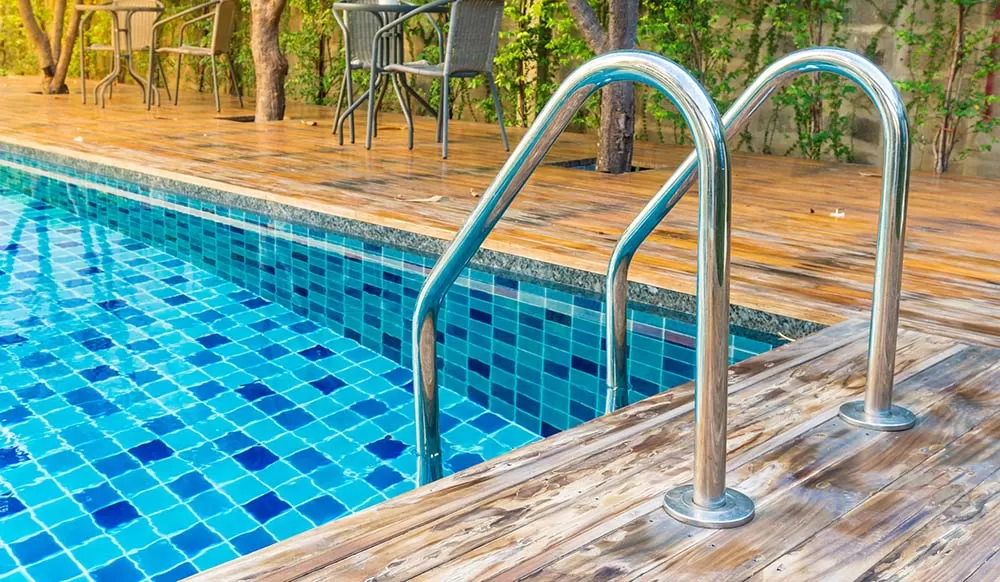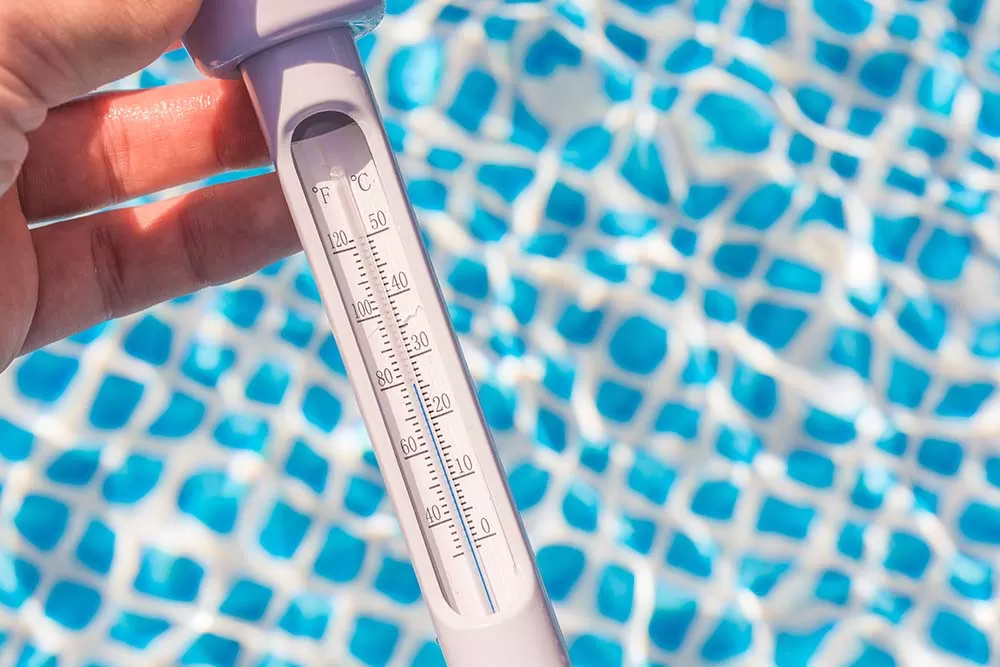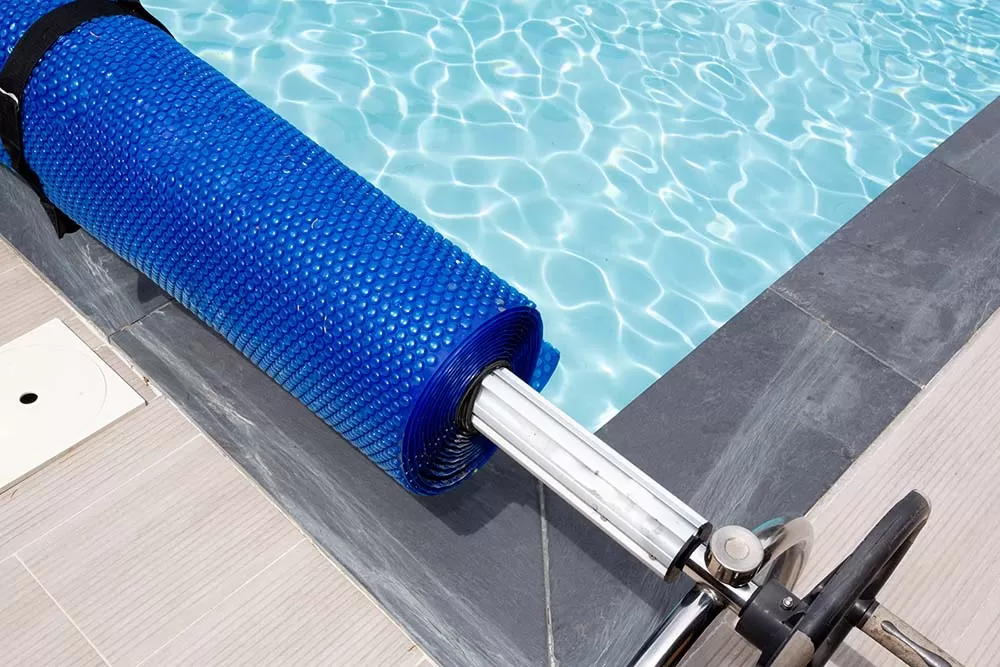
Best Air Temperature for Swimming
With the temperatures dropping due to the winter season, it’s only natural to wonder which is the best air temperature for swimming. After all, the worst thing anyone wants is catching a cold after a good swim.
For this reason, we’ll show you which is the right temp for you to use your pool safely. Of course, swimming temperatures can always be a matter of preference. However, we’ll show you which is the standard water’s condition when it comes to swimming.
Difference Between Water and Air Temperatures
Have you noticed that sometimes you feel chilly after getting out of your pool?
Well, this happens due to the differences between air and water temperatures. For this reason, you must take into consideration both water and air temperatures when it comes to the optimal swimming conditions.
For the most part, water temperature is often a few degrees less than the outside temperature. According to the National Data Buoy Center, this tends to happen because heat travels at a slower rate in water than in air.
Moreover, another factor to take into consideration is the radiation. After all, radiation can cause the air temp to be higher over water than over land.
If you’re looking for the perfect swimming conditions, you need to consider both water and air temperatures.
What’s the Best Air Temperature for Swimming ?

Whether you count on an outdoor pool or an indoor one, air temp is essential to keep in mind for optimal swimming conditions. Of course, controlling temperatures for indoor pools is much easier than with outdoor pools.
The best air temperature for swimming depends on the activity you’re using your pool. For instance, if you want to achieve comfort levels, then go for an air temp of 82 to 84 degrees. If you’re using the pool for aquatic therapy, then the air temp must be 84 degrees.
Lastly, in case you’re using your pool for swimming competitive events in the United States, then the ideal temperatures range between the temperatures of 78 to 82 degrees.
Which is the Ideal Water Temperature for Swimming ?

Just like with air temp, the ideal water temperature varies for swimming depending on the activity you’re doing. For most swimming activities, such as recreational swimming and low-intensity swimming, a comfortable water temperature is between 86 to 88 degrees Fahrenheit. However, temperatures might lower or higher your pool’s use.
For instance, if you are using your swimming pool for competitive reasons or high-intensity exercise, then the temperature must be 82 degrees or even lower. On the other hand, if the pool is used for physical rehabilitation or aquatic therapy, then the water should be between 90 to 92 degrees Fahrenheit.
When looking for a temperature that is neither too cold nor too hot, you should definitely go for a range between 78 to 82 degrees.
As you may have already noticed, competitive swimming requires colder water and air temperatures. The reason behind this is because heated pools can affect a swimmer’s performance by overheating the swimmers. That’s why professional swimmers tend to benefit more from water that’s around 70 degrees.
On the contrary, rehabilitation purposes require higher temperatures. This is because temperatures of 90 degrees or higher tend to improve blood flow as well as reduce joint pain. For this reason, a relaxation pool and spa tends to have its water around these temperatures.
How Do I Measure a Pool’s Temperature ?

Luckily, measuring your pool’s water temp is simple. If you already count on a pool heater, then it’s very likely that it already comes with a built-in thermostat. Nevertheless, in case you want a more accurate measurement, you can always purchase a pool thermometer.
When opting for a pool thermometer, you can choose between a digital, analog, or an infrared presentation. However, if accuracy is what you’re looking for, then we highly suggest you go for the digital thermometer.
Why Should You Take Into Consideration a Controlled Pool Temperature?

Besides granting swimmers a good experience, controlled pool temperature can bring other types of benefits as well. You can manage your pool’s water temperature by using an efficient water heater. You can also use a solar cover to heat your pool.
Here are some reasons why you should consider having a controlled pool temperature:
- You keep swimmers safe.
- The pool’s water chemistry will stay in check.
- There’s little to no algae growth.
You Keep Swimmers Safe
First, keeping water controlled can help keep swimmers safe at all times. As you know, older adults tend to become sensitive to temperature changes. By keeping the pool’s water at the right temperature ( i.e., between 86 to 88 degrees Fahrenheit), you’ll provide seniors an enjoyable swimming experience.
Moreover, by having a controlled water temp, you’ll be able to match your needs depending on the season. From mild climates to hot summers, you’ll be able to give swimmers just the right thing to freshen up.
The Pool’s Water Chemistry Will Stay in Check
Besides a comfortable and safe experience, having a controlled water temperature will also help balance out the pool’s chemicals. Keeping your pool’s chemicals balanced will help you prevent all sorts of troubles, such as cloudy water.
When keeping your water’s temp high for long periods of time, you can make it a harbor for all sorts of bacteria. In many cases, in order to prevent this sort of thing from happening, you’ll need to add more sanitizers and chlorine. However, a controlled pool temperature will help you keep the water at the right heat.
There’s Little to No Algae Growth
Lastly, controlling the temperature of your pool helps you keep water in the right conditions. This means no algae growth. By cooling your pool’s water after using it, you’ll prevent any algae from germinating.
Now that you know the best air temperature for swimming along with the ideal water temperature, it’s time for you to control your pool’s water temperature. By keeping the temp just right, you’ll be able to ensure that both your guests and yourself have an enjoyable experience.




